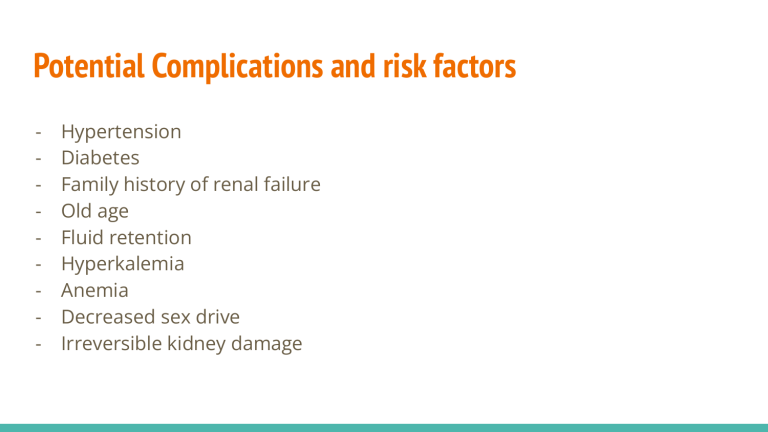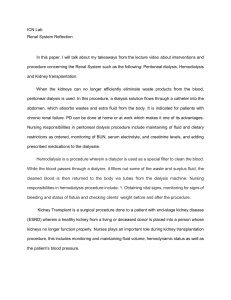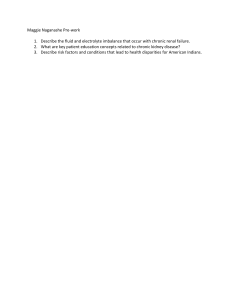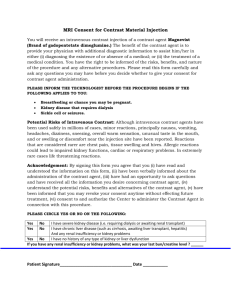
Potential Complications and risk factors - Hypertension Diabetes Family history of renal failure Old age Fluid retention Hyperkalemia Anemia Decreased sex drive Irreversible kidney damage Nursing Diagnoses Excess fluid volume Electrolyte imbalance Risk for imbalanced nutrition, less than body requirements Risk for infection Risk for decreased cardiac output Deficient knowledge Nursing/Multidisciplinary Interventions Acute renal failure nursing/interdisciplinary intervention - Monitor intake and output Observe for oliguria followed by polyuria Daily weight Monitor for signs and symptoms of electrolyte imbalance Encourage patient to restrict potassium Dialysis Chronic renal failure interventions - Provide Renal Diet Restrict fluid as prescribed Provide electrolyte replacement or restriction Monitor and plan nursing care for hypertension and heart failure Prepare client for dialysis or kidney transplant Monitor I&O and vital signs Administer medication with caution (“39 Chronic Kidney Disease Diet Info Ideas | Kidney Disease Diet, Chronic Kidney Disease Diet, Chronic Kidney Disease,” n.d.) Dialysis Used to filter the blood to remove wastes and excess fluid Hemodialysis (“Hemodialysis - MedBroadcast.com,” n.d.) Peritoneal Dialysis (NIDDK, 2019) Patient teaching - Teach client to monitor weight and VS daily Report signs and symptoms of complications such as fluid volume overload, Hyperkalemia Instruct client that recovery of renal function could take up to one year Instruct client to avoid nephrotoxic drugs: NSAID, some antibiotics, contrast media Instruct client that they will need dialysis for life or transplant if they have end stage kidney disease Instruct client to stop smoking Instruct client to take medications as prescribed


